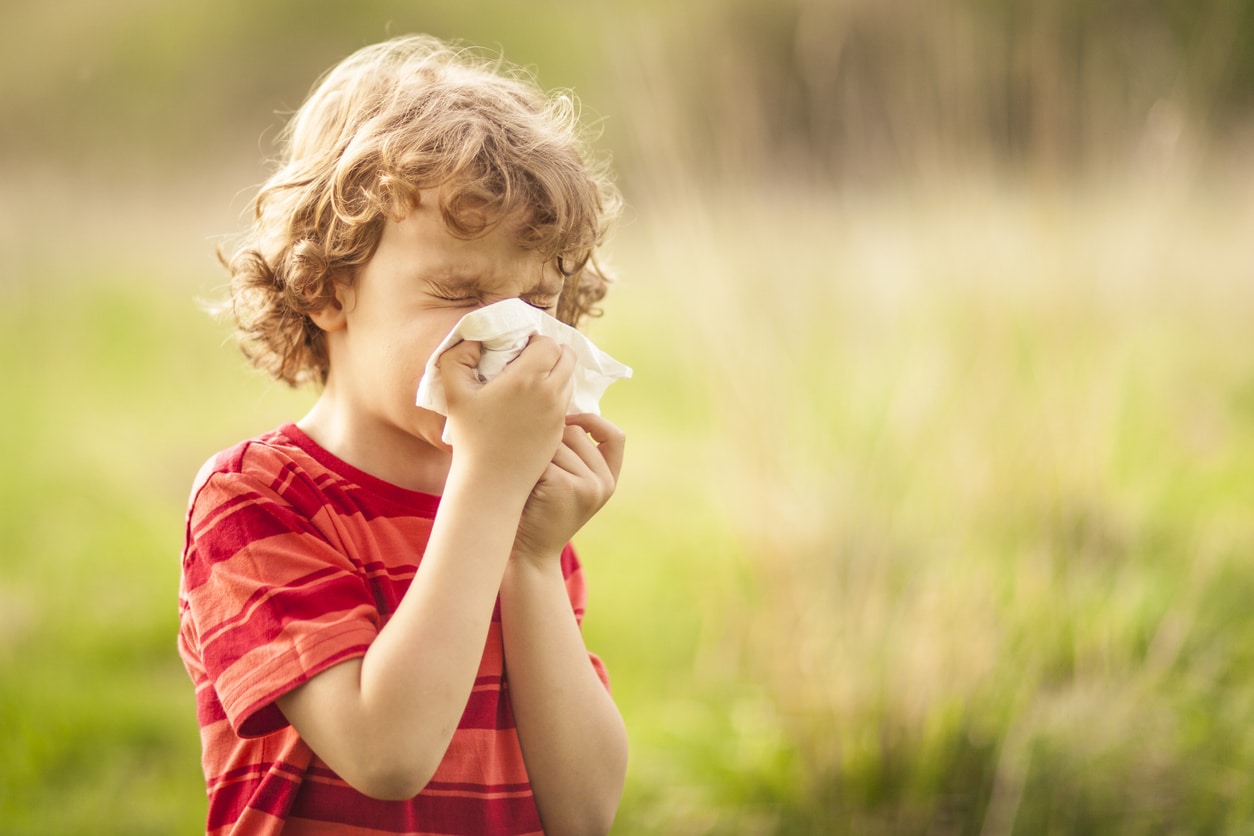It can be unclear how you should be treating allergies in children. KidsStreet Urgent Care is here to give you our top three tips for treating common allergies in kids.
Types Of Allergens and Allergy Symptoms
Allergies in kids can be vast and reactions can be severe, so it is important that you know the causes and symptoms.
Kids can develop an allergy to almost anything, however, the most common types of allergens are airborne and food. There are also some other, more specific allergens we will cover.
At KidsStreet Urgent Care, we offer treatment at our pediatric urgent care for children.
Airborne Allergens and Symptoms
Airborne allergens can affect your child at any point in the year, and they circulate in the air both indoors and outdoors. The most common airborne allergens include:
- Pollen
- Dust mites
- Pet hair or dander
- Mold spores
Symptoms of allergies to airborne substances include:
- Sneezing
- Coughing
- Runny nose
- Allergic rhinitis
- Congestion
- Watery or itchy eyes
- Hay fever
- Itchy skin
- Skin rash
- Congested or itchy ear canals
Food Allergens and Symptoms
Allergies to food can be extremely dangerous, especially if the child has a severe allergy to them. Common foods that cause allergies include:
- Tree nuts
- Peanuts
- Fish
- Shellfish
- Soy
- Eggs
- Wheat
- Milk
Food allergy symptoms include:
- Vomiting and diarrhea
- Swelling of the tongue, lips, and mouth
- Anaphylaxis (in severe cases)
Other Allergens and Symptoms
There are several other allergens that can affect kids and adults alike. These allergens include:
- Medications (penicillin, etc.)
- Chemicals (such as those in laundry detergents, fabric softeners, etc.)
- Insect stings (bees, wasps, ants, hornets, etc.)
Symptoms of these broader allergens include:
- Skin rash
- Hives
- Fever
Treating Allergies In Children
There are many ways of testing and treating allergies in kids, and KidsStreet Urgent Care is here to give you our top three tips.
Tip #1: Avoid The Allergen
The best way to treat allergies in kids is to reduce the amount that your child comes in contact with the allergen. This can be difficult to do, especially in the case of airborne allergens, but best practices include:
- Check pollen counts daily, and stay indoors with the windows closed when the pollen count is high and on windy days.
- Keep air conditioning on and vacuum frequently, especially when avoiding allergens such as dust mites from your child’s environment.
- Put a dehumidifier in damp areas of the home.
- Frequently clean and wash blinds and down-filled blankets or pillows.
- Staying away from a substance, such as penicillin.
- Check labels on foods, chemicals, and general household products to ensure they do not contain allergens.
Tip #2: Use Medications When Needed
Due to allergies being extremely common, there are a variety of medications available to treat them. Over the counter medications for allergies include antihistamines such as Children’s Benadryl, Zyrtec and Claritin. To treat nasal congestion, you can also utilize over the counter nose sprays.
During seasons like Spring and Summer, it may be in your best interest to give your child a dose of allergy medication everyday to keep their symptoms at bay. Be sure to talk to their pediatric provider before doing so, and also get a recommended list of medications from them.
Tip #3: Get Your Child Tested
It can be difficult to pinpoint exactly what is causing your child’s allergic reactions. A telling sign of what your child is allergic to is the kind of allergic reaction they experience when exposed to the allergen.
At an allergy specialist, your child can receive a full-panel screening which exposes them to small amounts of the allergens. After waiting for a while, the specialist will then be able to see exactly what they are allergic to and to what extent.
For certain allergies, your child may be eligible for allergy shots. These happen weekly or bi-weekly, and can assist your child in building an immunity to the allergen.
Turn To KidsStreet Urgent Care
Need help testing and treating allergies in kids? KidsStreet Urgent Care is here to help! We want to get your child healing and feeling better, FAST!
To visit a clinic, register online. You can get in line and wait from anywhere until we’re ready to see you. We’ll send you a text when it’s time to head to the clinic.
Walk-ins are always accepted, however, please be aware that registering online reduces in-clinic wait times. Walk-ins are added to the same queue as those who register online.

